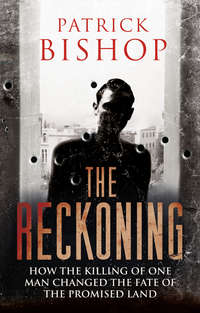Sadece Litres'te okuyun
Kitap dosya olarak indirilemez ancak uygulamamız üzerinden veya online olarak web sitemizden okunabilir.
Kitabı oku: «The Reckoning: How the Killing of One Man Changed the Fate of the Promised Land», sayfa 2
Bir şeyler ters gitti, lütfen daha sonra tekrar deneyin
₺124,90
Türler ve etiketler
Yaş sınırı:
0+Litres'teki yayın tarihi:
27 aralık 2018Hacim:
390 s. 35 illüstrasyonISBN:
9780007518272Telif hakkı:
HarperCollins